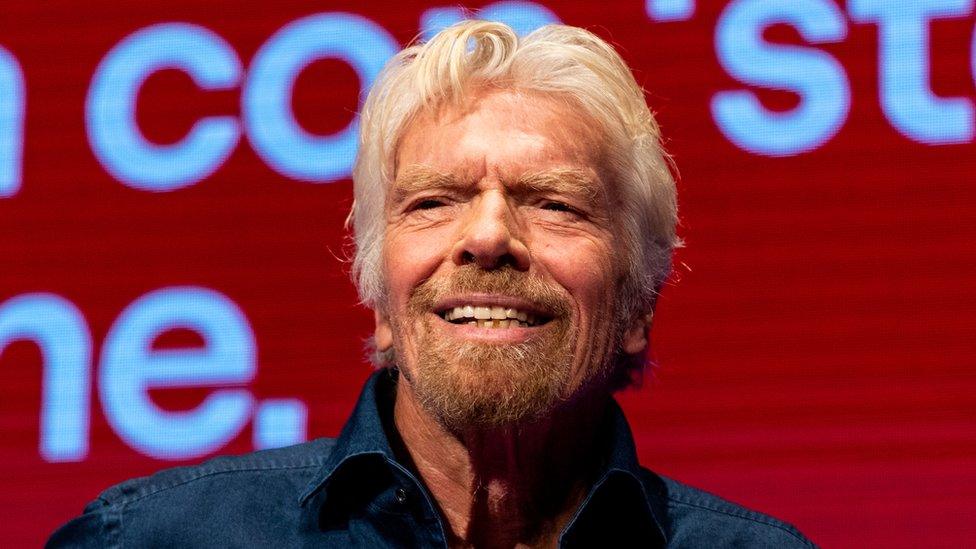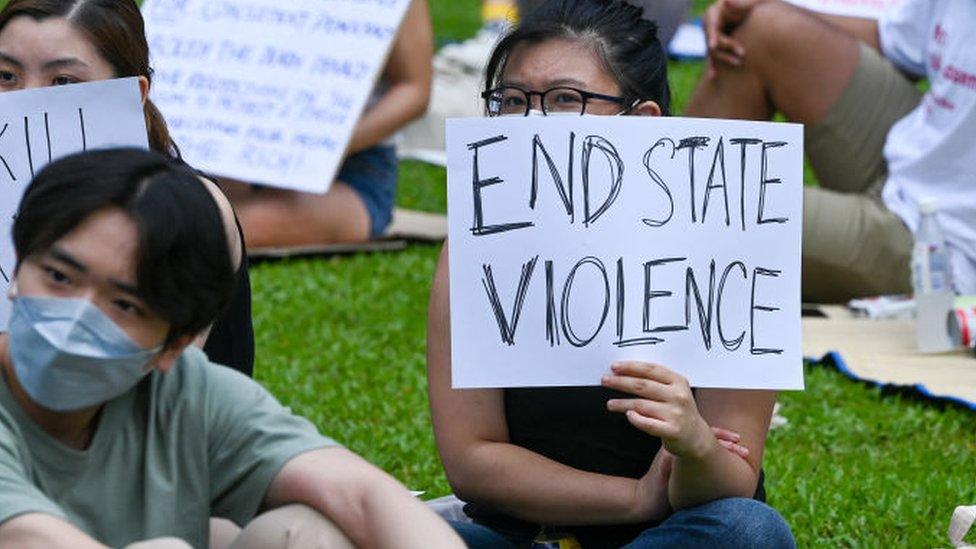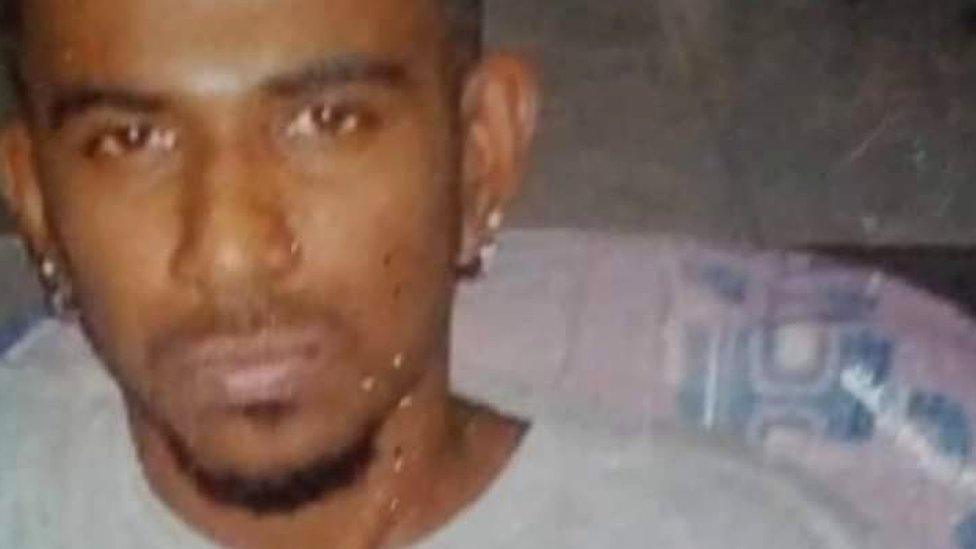Sir Richard Branson declines Singapore death penalty TV debate invitation
- Published

Sir Richard Branson has turned down an invitation from Singapore's government to take part in a live television debate about the country's approach towards drugs and the death penalty.
He was invited to take part in a discussion with the city state's home affairs minister K Shanmugam.
The British billionaire has said he opposes Singapore's death penalty for crimes such as drug smuggling.
He spoke out over the execution of drug trafficker Nagaenthran Dharmalingam.
In an open letter posted on his blog, external, Sir Richard said television debates are "always at risk of prioritising personalities over issues - cannot do the complexity of the death penalty any service".
He also called for the island nation's government to engage with local figures in "constructive, lasting dialogue involving multiple stakeholders, and a true commitment to transparency and evidence" to help it find a way to abolish the death penalty.
Allow X content?
This article contains content provided by X. We ask for your permission before anything is loaded, as they may be using cookies and other technologies. You may want to read X’s cookie policy, external and privacy policy, external before accepting. To view this content choose ‘accept and continue’.
Earlier this month Singapore's Ministry of Home Affairs rebutted an earlier blog post of Sir Richard's, external in which the Virgin Group founder said the government "seems bent on executing scores of low-level drug smugglers, mostly members of poor, disadvantaged minorities".
He went on to say Malaysian Nagaenthran Dharmalingam had been hanged in Singapore earlier in the year for drug trafficking despite having "a well-documented intellectual disability".
In 2009, Nagaenthran was caught crossing into Singapore from Malaysia with 43g (1.5oz) heroin strapped to his left thigh.
Under Singapore's drug laws - which are among the toughest in the world - those caught carrying more than 15g of heroin are subject to the death penalty.
During his trial, the 34-year-old initially said he was coerced into carrying the drugs, but later said he had committed the offence because he needed money.
The court said his initial defence was "fabricated". He was eventually sentenced to death by hanging.
Nagaenthran's case was highly controversial as he was assessed by a medical expert to have an IQ of 69 - a level that indicates an intellectual disability. But a court found that he was not intellectually disabled.
Nagaenthran's execution triggered a wave of protests as people spoke out about what they saw as the injustice of his death sentence.
After Sir Richard's criticism Singapore's government invited him to take part in a live television debate with Mr Shanmugam and offered to pay his travel and hotel costs.
The government has said the death penalty is a clear deterrent that has helped prevent major drug cartels from becoming established in the South East Asian country.
Related topics
- Published28 May 2022

- Published27 April 2022

- Published14 January 2022
- Published30 September 2021
